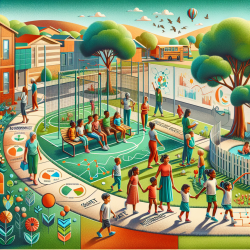Empowering Practitioners: Harnessing Research to Combat Childhood Victimization
As practitioners dedicated to improving the lives of children, it is crucial to stay informed about the latest research and its implications. A recent study titled Comparing the Rates of Early Childhood Victimization across Sexual Orientations: Heterosexual, Lesbian, Gay, Bisexual, and Mostly Heterosexual provides valuable insights into the prevalence of childhood victimization among different sexual orientation groups. This blog aims to help practitioners implement these findings to create better outcomes for children.
Understanding the Research
The study conducted by Zou and Andersen (2015) highlights the elevated rates of childhood victimization experienced by individuals identifying as "mostly heterosexual" (MH), which are similar to those experienced by lesbian, gay, and bisexual (LGB) individuals. The research utilized a comprehensive assessment of adverse childhood experiences (ACE) to compare the victimization rates among heterosexual, LGB, and MH groups.
Key Findings
- MH individuals are 1.47 times more likely than heterosexuals to report childhood victimization experiences perpetrated by adults.
- The rates of victimization among MH groups are more akin to LGBs, significantly higher than heterosexual groups.
- Childhood victimization can have long-term negative consequences on mental and physical health, underscoring the importance of addressing these disparities.
Implications for Practitioners
As a practitioner, understanding these findings can enhance your ability to provide targeted support to children who may be at risk of victimization. Here are some strategies to consider:
- Inclusive Assessment: Incorporate questions about sexual orientation in assessments to better understand the child's experiences and potential risks.
- Tailored Interventions: Develop interventions that address the specific needs of MH and LGB children, focusing on resilience-building and coping strategies.
- Collaboration: Work with schools and parents to create supportive environments that reduce the risk of victimization and promote inclusivity.
Encouraging Further Research
While this study provides valuable insights, there is a need for further research to explore the unique challenges faced by MH individuals. Practitioners are encouraged to contribute to this growing body of knowledge by conducting studies that delve deeper into the causes and consequences of victimization across different sexual orientation groups.
To read the original research paper, please follow this link: Comparing the Rates of Early Childhood Victimization across Sexual Orientations: Heterosexual, Lesbian, Gay, Bisexual, and Mostly Heterosexual.










